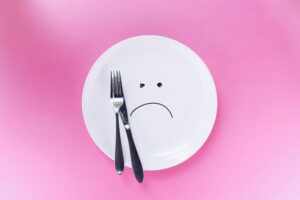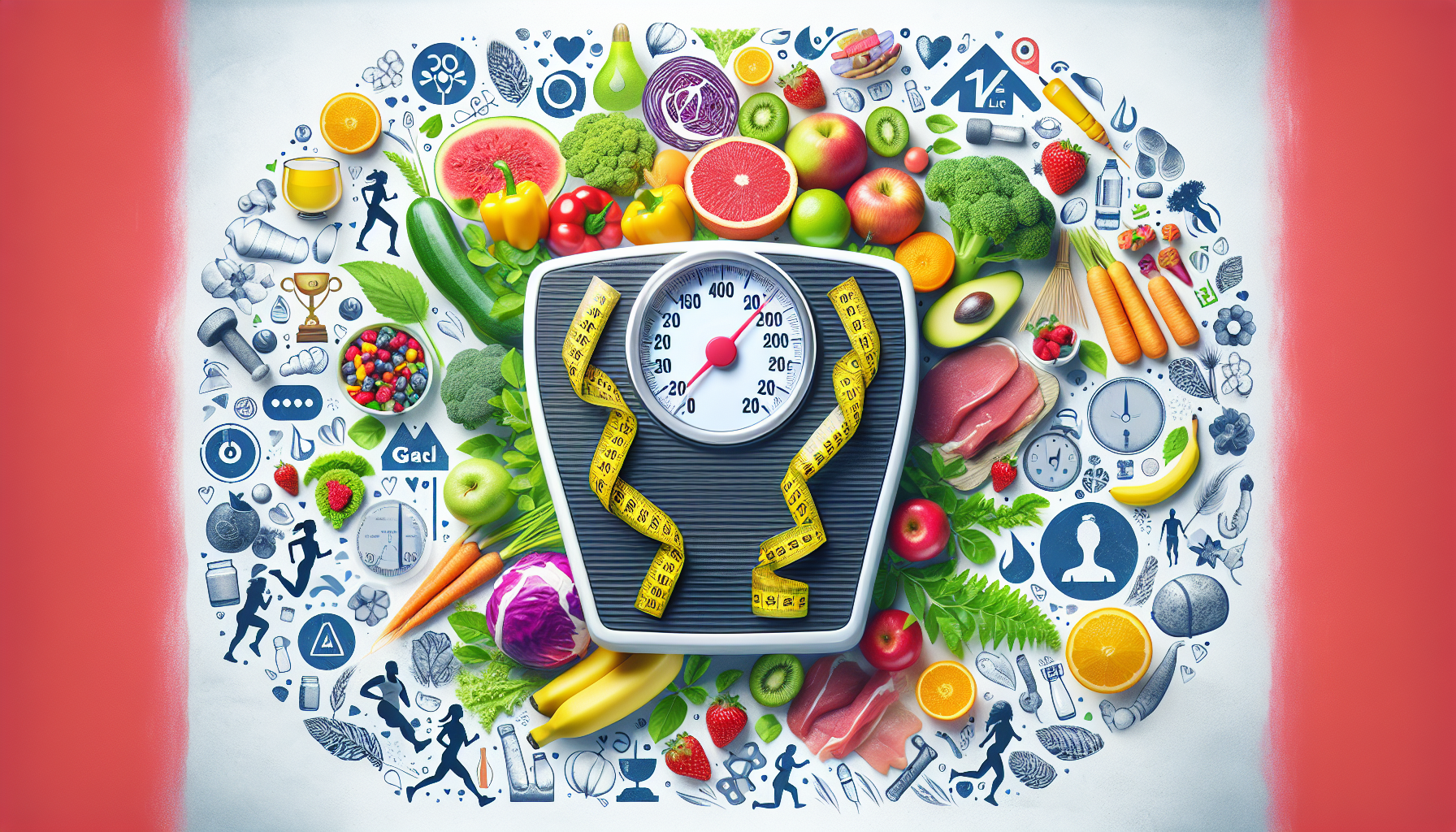Looking to shed those extra pounds? If you’re wondering just how fast you can lose 20 lbs, you’re in the right place. In this article, we’ll explore the latest scientific studies that have investigated the relationship between weight loss and time. Get ready to uncover some fascinating insights that will help you on your journey towards a healthier, fitter you!
Setting Realistic Expectations

Discover the Ultimate Weight Loss Secrets Here!
Factors Affecting Weight Loss
When it comes to losing weight, it’s important to consider the various factors that can affect your progress. These factors can include your age, sex, genetics, metabolism, overall health, and lifestyle habits. It’s crucial to understand that weight loss is not a one-size-fits-all journey, and what may work for someone else might not work for you. By acknowledging these factors, you can set realistic expectations for your own weight loss journey and make changes that align with your unique circumstances.
Healthy Rate of Weight Loss
It’s essential to approach weight loss in a healthy and sustainable manner. While it’s natural to want to lose weight quickly, it’s important to remember that slow and steady progress is more likely to lead to long-term success. The National Institutes of Health (NIH) recommends aiming to lose 1-2 pounds per week, which is considered a safe and healthy rate. Rapid weight loss can often result in muscle loss, nutrient deficiencies, and a higher likelihood of gaining the weight back once you stop the restrictive diet or intense exercise program. Remember, your overall health and well-being should always be a priority when pursuing weight loss goals.
Creating a Calorie Deficit
Understanding Calories
Calories are the energy units found in food and beverages that our bodies need to function properly. They provide fuel for various bodily processes, including breathing, digestion, and physical activity. When it comes to weight loss, creating a calorie deficit is crucial. A calorie deficit occurs when you consume fewer calories than your body needs, forcing it to use stored fat as an energy source. Understanding the concept of calories and being aware of the caloric content in the foods you consume can help you create an effective weight loss plan.
Determining Calorie Deficit
To determine the calorie deficit you need to create for weight loss, you’ll first need to establish your estimated daily calorie needs. This can be done by calculating your Basal Metabolic Rate (BMR), which is the number of calories your body needs to maintain basic functions at rest, and then factoring in your activity level. There are various online calculators and formulas available that can assist you in determining your estimated caloric needs. Once you have this number, you can create a calorie deficit by consuming fewer calories than your estimated daily needs, typically by 500-1000 calories per day. However, it’s important to be mindful of not exceeding a deficit of more than 1000 calories per day, as extreme caloric restriction can be detrimental to your overall health.
Click Here for Proven Fat-Burning Strategies!
Importance of Balanced Diet
While creating a calorie deficit is important for weight loss, it’s equally essential to prioritize a balanced diet. A balanced diet consists of a variety of nutrient-dense foods from all food groups, including fruits, vegetables, lean proteins, whole grains, and healthy fats. These foods provide the necessary vitamins, minerals, and antioxidants that support overall health and well-being. Incorporating a balanced diet into your weight loss plan ensures that you’re not only losing weight but also nourishing your body with the essential nutrients it needs to function optimally. Avoid extreme or fad diets that promote severe restriction or eliminating entire food groups, as they can be unsustainable and may lead to nutrient deficiencies.
Incorporating Exercise
Benefits of Exercise
Exercise plays a vital role in achieving and maintaining weight loss. Not only does it help burn calories and contribute to the calorie deficit, but it also offers a multitude of other health benefits. Regular physical activity can improve cardiovascular health, boost mood, increase energy levels, enhance muscle tone and strength, and improve overall fitness. Exercise also helps preserve lean muscle mass during weight loss, which is important for maintaining a healthy metabolism. In addition to its physical benefits, exercise has been shown to reduce stress and improve sleep, both of which are crucial factors in successful weight management.
Types of Exercise
There are various types of exercise that can be incorporated into your weight loss journey, including cardiovascular exercise, strength training, and flexibility exercises. Cardiovascular exercise, also known as aerobic exercise, includes activities such as walking, running, cycling, swimming, and dancing. These activities elevate your heart rate and help burn calories. Strength training, on the other hand, involves resistance exercises that work your muscles, such as lifting weights or using resistance bands. Strength training helps build lean muscle mass and increase your metabolism. Flexibility exercises, such as yoga or stretching, improve your mobility and can assist in injury prevention.
Finding the Right Exercise
Finding the right exercise for you is key to staying motivated and enjoying physical activity. Consider your interests, preferences, and fitness level when selecting exercises. If you enjoy being outdoors, activities like hiking or playing a sport might be suitable options. If you prefer exercising in a group setting, consider joining a fitness class or a sports team. Experiment with different activities until you find ones that you genuinely enjoy, as this will increase the likelihood of sticking to your exercise routine and making it a habit.

Building a Fitness Routine
To incorporate exercise into your weight loss plan effectively, it’s crucial to establish a consistent fitness routine. Set realistic and attainable goals for the frequency and duration of your workouts. Aim for at least 150 minutes of moderate-intensity aerobic activity or 75 minutes of vigorous-intensity aerobic activity per week, along with strength training exercises targeting major muscle groups at least two days a week. Gradually increase the intensity and duration of your workouts as your fitness level improves. Remember to listen to your body and give yourself rest days to prevent overexertion and avoid injury.
Utilizing Portion Control
Importance of Portion Control
Portion control is a crucial aspect of achieving and maintaining weight loss. Even if you’re consuming nutritious foods, eating large portions can lead to an excessive calorie intake and hinder your weight loss efforts. By practicing portion control, you can ensure that you’re consuming appropriate serving sizes and managing your caloric intake effectively. Portion control also helps you develop a healthy relationship with food, allowing you to enjoy a wide variety of foods without feeling deprived or overindulging.
Methods of Portion Control
There are several methods you can utilize to practice portion control. One effective method is to use measuring cups and spoons to accurately measure your food portions. This allows you to have a better understanding of portion sizes, especially for calorie-dense foods. Another technique is practicing mindful eating. This involves paying attention to your body’s hunger and fullness cues, eating slowly, and savoring each bite. By listening to your body and eating until you’re satisfied rather than overly full, you can avoid overeating. Using smaller plates and bowls can also trick your brain into thinking you’re consuming more food, helping you feel satisfied with smaller portion sizes.
Tracking Food Intake
Tracking your food intake can be a helpful tool in practicing portion control and managing your overall calorie intake. There are various smartphone apps and online tools available that allow you to log your meals and snacks, providing you with a clear picture of your daily caloric intake. By tracking your food, you can identify any patterns or habits that may contribute to overeating or hinder your weight loss progress. Additionally, food tracking can help you make more informed choices about the foods you consume, allowing you to prioritize nutrient-dense options and be mindful of portion sizes.
Implementing Intermittent Fasting

Understanding Intermittent Fasting
Intermittent fasting is an eating pattern that involves cycling between periods of fasting and eating. It does not specify which foods to eat but rather when to eat them. There are several different fasting schedules to choose from, ranging from daily fasting windows of 12-16 hours to alternate day fasting or the 5:2 approach, where you eat normally for five days and restrict calories for two days. Intermittent fasting has gained popularity for its potential benefits, including weight loss, improved insulin sensitivity, and cellular repair processes. However, it’s important to consult with a healthcare provider before implementing any fasting regimen, especially if you have any underlying health conditions.
Fasting Schedules
As mentioned, there are various fasting schedules within the realm of intermittent fasting. One of the most common approaches is the 16/8 method, where you fast for 16 hours and have an 8-hour eating window each day. This can be achieved by skipping breakfast and starting your eating window at lunchtime, for example. Another popular approach is the 5:2 method, where you eat normally for five days of the week and restrict your calorie intake to 500-600 calories on the remaining two days. It’s important to choose a fasting schedule that suits your lifestyle and preferences while ensuring that you’re still meeting your nutritional needs.
Potential Benefits and Risks
Intermittent fasting has been the subject of several scientific studies investigating its effects on weight loss and overall health. Some studies have shown that intermittent fasting can be an effective approach for weight loss and improving metabolic health, as it promotes a calorie deficit and may enhance fat burning. Additionally, intermittent fasting has been associated with improved insulin sensitivity, reduced inflammation, and potential longevity benefits in some animal studies. However, it’s essential to acknowledge that more research is needed, and individual responses to intermittent fasting may vary. Some individuals may find it challenging to stick to a fasting schedule or may experience negative side effects, such as low energy levels or difficulty concentrating. It’s crucial to listen to your body and seek guidance from a healthcare professional before implementing intermittent fasting into your weight loss plan.
Managing Stress and Sleep
Impact of Stress on Weight Loss
Managing stress is crucial for successful weight loss as stress can impact your body’s hormone balance, metabolism, and overall wellbeing. When stress levels are high, the body produces cortisol, a hormone that can lead to increased appetite and cravings, particularly for unhealthy foods. Stress can also disrupt sleep patterns, decrease motivation for physical activity, and increase the likelihood of emotional eating. By actively managing stress, you can reduce these negative impacts and create a more supportive environment for weight loss.

Strategies for Stress Management
There are several effective strategies you can incorporate into your daily routine to manage stress. Engaging in regular physical activity, such as walking, yoga, or meditation, can have a positive impact on both your physical and mental well-being. Taking time for self-care activities like reading, taking a bath, spending time in nature, or engaging in hobbies you enjoy can also help alleviate stress. Additionally, practicing deep breathing exercises, journaling, or talking to a trusted friend or family member can provide emotional release and support. It’s essential to find stress-management techniques that resonate with you and prioritize incorporating them into your daily routine.
Effects of Sleep on Weight Loss
Quality sleep plays a significant role in weight loss and overall health. Lack of sleep can disrupt hormone regulation, specifically an increase in the hunger hormone ghrelin and a decrease in the satiety hormone leptin, leading to increased appetite and a higher risk of overeating. Poor sleep can also negatively impact energy levels, motivation for physical activity, and cognitive function, making it more challenging to adhere to a weight loss plan. By prioritizing adequate sleep, you can support your weight loss efforts and optimize your overall well-being.
Improving Sleep Hygiene
To improve your sleep hygiene, it’s essential to establish a consistent sleep routine and create an environment conducive to quality sleep. Aim for a regular sleep schedule by going to bed and waking up at the same time each day, even on weekends. Create a sleep-friendly environment by keeping your bedroom cool, dark, and quiet. Avoid electronic screens, caffeine, and vigorous exercise close to bedtime, as these can disrupt sleep patterns. Establishing pre-sleep rituals such as reading, taking a warm bath, or practicing relaxation techniques can signal your body that it’s time to wind down and prepare for sleep. By practicing good sleep hygiene, you can enhance the quality and duration of your sleep, facilitating weight loss and overall well-being.
Staying Hydrated
Importance of Water in Weight Loss
Staying hydrated is often overlooked but plays a critical role in weight loss. Drinking an adequate amount of water supports various bodily functions and can aid in weight loss efforts. Water helps maintain proper digestion, transports nutrients, regulates body temperature, supports metabolism, and helps flush out toxins. Additionally, sometimes we mistake thirst for hunger, leading to unnecessary calorie consumption. By staying hydrated, you can avoid confusion between thirst and hunger cues and ensure you’re nourishing your body optimally.

Recommended Daily Intake
The recommended daily water intake varies depending on factors such as age, sex, activity level, and climate. However, a general guideline is to aim for at least eight 8-ounce glasses of water per day, which equals about 2 liters or half a gallon. If you engage in vigorous physical activity or live in a hot climate, you may need to consume more water to compensate for fluid losses. It’s important to listen to your body’s thirst cues and hydrate accordingly throughout the day.
Tips for Increasing Water Consumption
If you struggle with drinking enough water, there are several strategies you can implement to increase your water consumption. Keeping a refillable water bottle with you at all times can serve as a reminder to drink more frequently. Flavoring your water with fresh fruits, herbs, or natural flavor enhancers, such as lemon or cucumber slices, can make it more enjoyable and encourage increased intake. Setting reminders on your phone or using water tracking apps can help you stay on top of your hydration goals. Additionally, consuming water-rich foods like fruits and vegetables can contribute to your overall water intake. Be mindful of increasing your water consumption gradually to avoid overhydration and listen to your body’s signals.
Seeking Professional Guidance
Consulting a Healthcare Provider
Before embarking on any weight loss journey, it’s essential to consult with a healthcare provider, especially if you have any underlying health conditions or if you’re currently taking medication. Your healthcare provider can assess your overall health, provide tailored recommendations, and address any potential risks or concerns. They can also monitor your progress and make adjustments to your weight loss plan as needed. Remember, your healthcare provider is a valuable resource in helping you navigate your weight loss journey safely and effectively.
Working with a Registered Dietitian
A registered dietitian (RD) can be an invaluable asset in your weight loss journey. They are trained professionals who specialize in nutrition and can provide evidence-based guidance tailored to your individual needs. A dietitian can assess your current dietary habits, help you create a personalized nutrition plan, and provide ongoing support and education. They can assist in setting realistic goals, interpreting food labels, and integrating variety and balance into your meals. Working with a dietitian can empower you to make sustainable changes, develop healthy habits, and optimize your weight loss progress.
Personal Trainers and Coaches
If you’re looking to incorporate exercise into your weight loss journey but feel overwhelmed or unsure where to start, seeking guidance from a personal trainer or coach can be beneficial. They can help you develop a safe and effective exercise program, provide guidance on proper form and technique, and keep you motivated and accountable. A personal trainer or coach can tailor workouts to your fitness level and specific goals, ensuring that you’re maximizing your time and effort in the gym or at home. They can also provide guidance on nutrition, lifestyle changes, and overall wellness to support your weight loss journey holistically.
Monitoring Progress
Regular Weigh-ins
Regularly weighing yourself can be a helpful way to track your weight loss progress. However, it’s important to approach weigh-ins with a healthy mindset. Weight can naturally fluctuate from day to day due to factors such as water retention, digestion, and menstrual cycles. Therefore, it’s best to weigh yourself at the same time of day, preferably in the morning before eating or drinking, and wearing minimal clothing. Focus on the overall trend of your weight over time rather than day-to-day fluctuations. If the number on the scale becomes a source of stress or negatively impacts your mental well-being, consider other measures of progress, such as body measurements or how your clothes fit.
Tracking Body Measurements
In addition to weighing yourself, tracking body measurements can provide a more comprehensive picture of your progress. Measure your waist, hips, arms, and thighs regularly and record the measurements. While the scale may not always reflect your progress accurately, changes in body measurements can demonstrate improvements in body composition, even if the number on the scale remains the same. Remember, weight loss involves more than just shedding pounds, and focusing on overall health and body composition is important for long-term success.
Keeping a Food Journal
Keeping a food journal can be a powerful tool in bringing awareness to your eating habits and identifying areas where you can make improvements. Record everything you eat and drink throughout the day, along with portion sizes. Note any emotions, cravings, or triggers that may be influencing your food choices. By tracking your food intake, you can identify patterns, make adjustments to your diet, and hold yourself accountable to your weight loss goals. Be honest with yourself and avoid judgment or guilt. A food journal should be a tool for self-reflection and guidance rather than a means of restriction or punishment.
Celebrating Non-Scale Victories
Weight loss is not solely about the numbers on the scale. Non-scale victories are important to acknowledge and celebrate along the way. These victories can include improved energy levels, increased strength or endurance, better fitting clothes, improved sleep quality, reduced cravings, or improved overall well-being. By recognizing and celebrating these achievements, you reinforce positive behavior and reinforce the importance of sustainable lifestyle changes over quick-fix approaches.
Maintaining Long-Term Success
Adopting Sustainable Habits
Maintaining long-term success with weight loss requires adopting sustainable habits rather than relying on short-term diets or temporary changes. Focus on incorporating lifestyle changes that you can maintain for the long haul. This includes prioritizing whole, nutrient-dense foods, being mindful of portion sizes, staying active, managing stress, and getting enough sleep. Find activities and foods that you enjoy and that align with your preferences and lifestyle. Slowly integrate these habits into your routine, allowing them to become second nature over time.
Avoiding Yo-Yo Dieting
Yo-yo dieting, also known as weight cycling, refers to the pattern of repeatedly losing weight and regaining it. It can be detrimental to both physical and mental health, as it can lead to metabolic disruptions, decreased muscle mass, nutrient deficiencies, and a negative relationship with food. Avoid extreme or unsustainable diets that promise quick results but are difficult to maintain long-term. Instead, focus on long-term lifestyle changes that support overall health, rather than solely focusing on a number on the scale. Remember, sustainable weight loss is a gradual process that prioritizes overall well-being and lifelong health.
Creating a Supportive Environment
Having a supportive environment is crucial for maintaining long-term success. Surround yourself with individuals who support your weight loss goals and encourage healthy habits. Communicate your goals with friends and family, and consider enlisting an accountability partner or joining a support group. Incorporate positive self-talk and affirmations into your daily routine to cultivate a supportive internal environment. By creating a network of support, you can navigate challenges, stay motivated, and foster a positive mindset throughout your weight loss journey.
In conclusion, setting realistic expectations for weight loss is essential for long-term success. By understanding the factors that can affect weight loss, creating a calorie deficit through a balanced diet and exercise, practicing portion control, incorporating intermittent fasting, managing stress and sleep, staying hydrated, seeking professional guidance when needed, monitoring progress, and adopting sustainable habits, you can achieve and maintain your weight loss goals effectively. Remember, each journey is unique, and progress may vary. Be kind to yourself, embrace the process, and celebrate the small victories along the way. Your commitment to creating a healthier lifestyle will lead to a happier, more fulfilled version of yourself.

